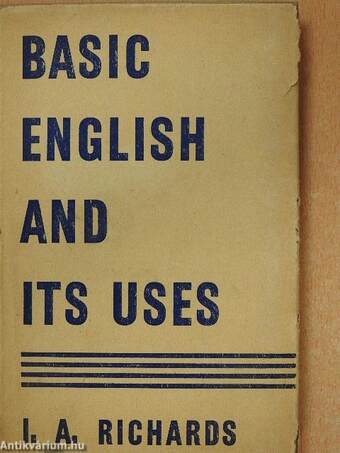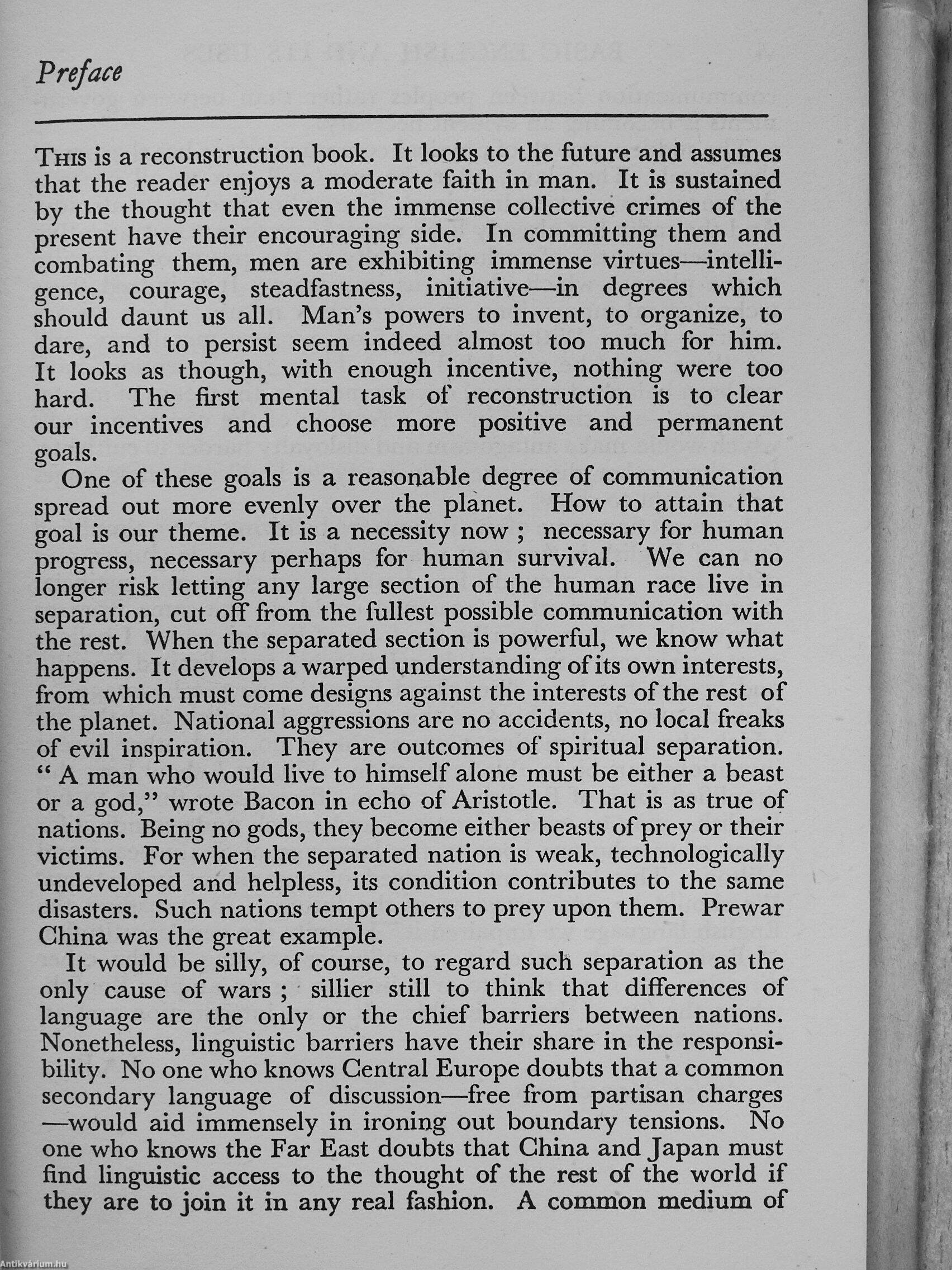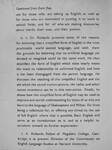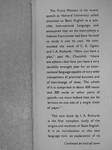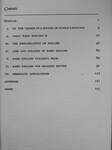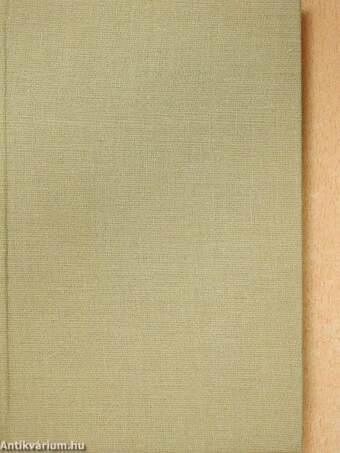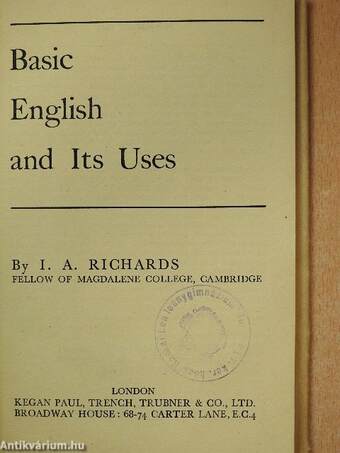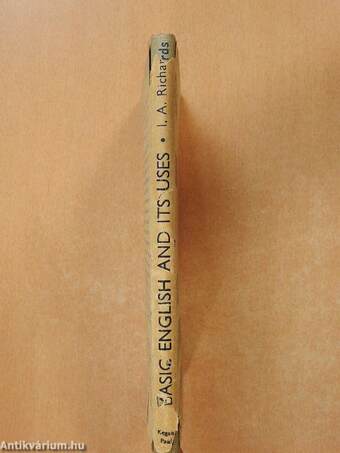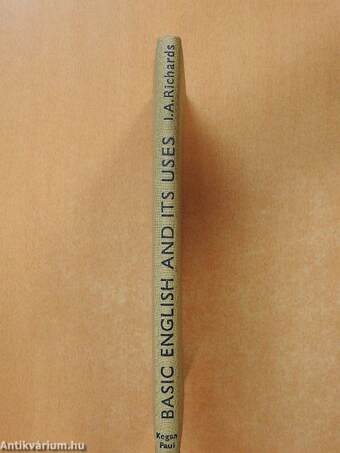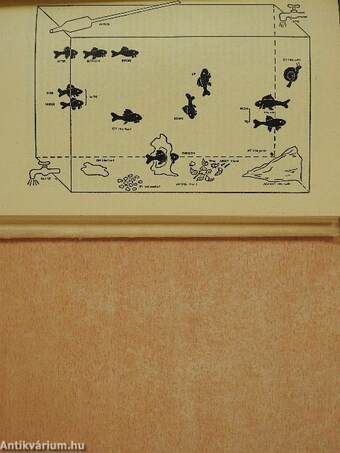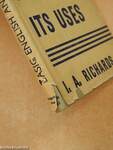1.061.432
kiadvánnyal nyújtjuk Magyarország legnagyobb antikvár könyv-kínálatát

VISSZA
A TETEJÉRE
JAVASLATOKÉszre-
vételek
Basic English and Its Uses
Védőborítós példány
| Kiadó: | Kegan Paul, Trench, Trubner & Co. Ltd. |
|---|---|
| Kiadás helye: | London |
| Kiadás éve: | |
| Kötés típusa: | Vászon |
| Oldalszám: | 127 oldal |
| Sorozatcím: | |
| Kötetszám: | |
| Nyelv: | Angol |
| Méret: | 19 cm x 13 cm |
| ISBN: | |
| Megjegyzés: | Néhány fekete-fehér ábrával illusztrálva. Nyomtatta W. & J. Mackay and Co., Ltd., Chatham. |
naponta értesítjük a beérkező friss
kiadványokról
naponta értesítjük a beérkező friss
kiadványokról
Előszó
TovábbFülszöveg
Continued from front flap.
use for those who are taking up English, as well as for those who are interested in putting it to work in special fields, and for all who are making discoveries about words, their uses, and their powers.
In it Dr. Richards presents some of the reasons for believing that a simplified form of English is the most practicable world second language, and with them the grounds for believing that no artificial language yet devised or imagined could do the same work. He then describes the form of English which most nearly meets the need, its relationship to unlimited English, and how it has been disengaged from the parent language. He discusses the teaching of this simplified English and the aid which the sound motion picture, the radio, and other recent inventions can be in this instruction. Finally, he shows how this simplified form of English may be used to improve and enrich understanding for those of us who are born to the language cf Shakespeare and... Tovább
Fülszöveg
Continued from front flap.
use for those who are taking up English, as well as for those who are interested in putting it to work in special fields, and for all who are making discoveries about words, their uses, and their powers.
In it Dr. Richards presents some of the reasons for believing that a simplified form of English is the most practicable world second language, and with them the grounds for believing that no artificial language yet devised or imagined could do the same work. He then describes the form of English which most nearly meets the need, its relationship to unlimited English, and how it has been disengaged from the parent language. He discusses the teaching of this simplified English and the aid which the sound motion picture, the radio, and other recent inventions can be in this instruction. Finally, he shows how this simplified form of English may be used to improve and enrich understanding for those of us who are born to the language cf Shakespeare and Milton. Far from being a substitute for, or offering any threat to, the use of full English where that is possible, Basic English will serve as an introduction to it, and as a helpfui instrument toward its further exploration.
I. A. Richards, Fellow of Magdalen College, Cambridge, is at present Director of the Commission on English Language Studies at Harvard University.
The Prime Minister in his recent speech at Harvard University called attention to Basic English as a possible International Language, and announced that on his instructions a Cabinet Committee had been formed to study it and its uses. He commended the work of C. K. Ogden and I. A. Richards. "Here you have a plan," said Mr. Churchill, "there are others—but here you have a very carefully wrought plan for an International Iknguage capable of very wide transactions of practical business and of interchange of ideas. The whole of it is comprised in about 650 nouns and 200 verbs or other parts of speech—no more indeed than can be written on one side of a single sheet of paper."
This new book by I. A. Richards is the first complete study of the origins and methods of Basic English. It is an introduction to this new language tool, an explanation of its
Continued on back of cover Vissza
Témakörök
- Idegennyelv > Idegennyelvű könyvek > Angol > Pedagógia
- Idegennyelv > Idegennyelvű könyvek > Angol > Nyelvészet
- Pedagógia > Tantárgypedagógia > Idegen nyelv > Angol
- Nyelvészet > Idegen nyelvek > Tanulása
- Nyelvészet > Idegen nyelvek > Tanítása
- Idegennyelv > Nyelvtanulás > Nyelvtanítás > Nyelvpedagógia
- Idegennyelv > Nyelvtanulás > Nyelvtanítás > Módszertan, oktatói, tanulói anyagok, segédletek
- Idegennyelv > Nyelvtanulás > Nyelvek > Angol > Tanfolyamok > Alapfok



